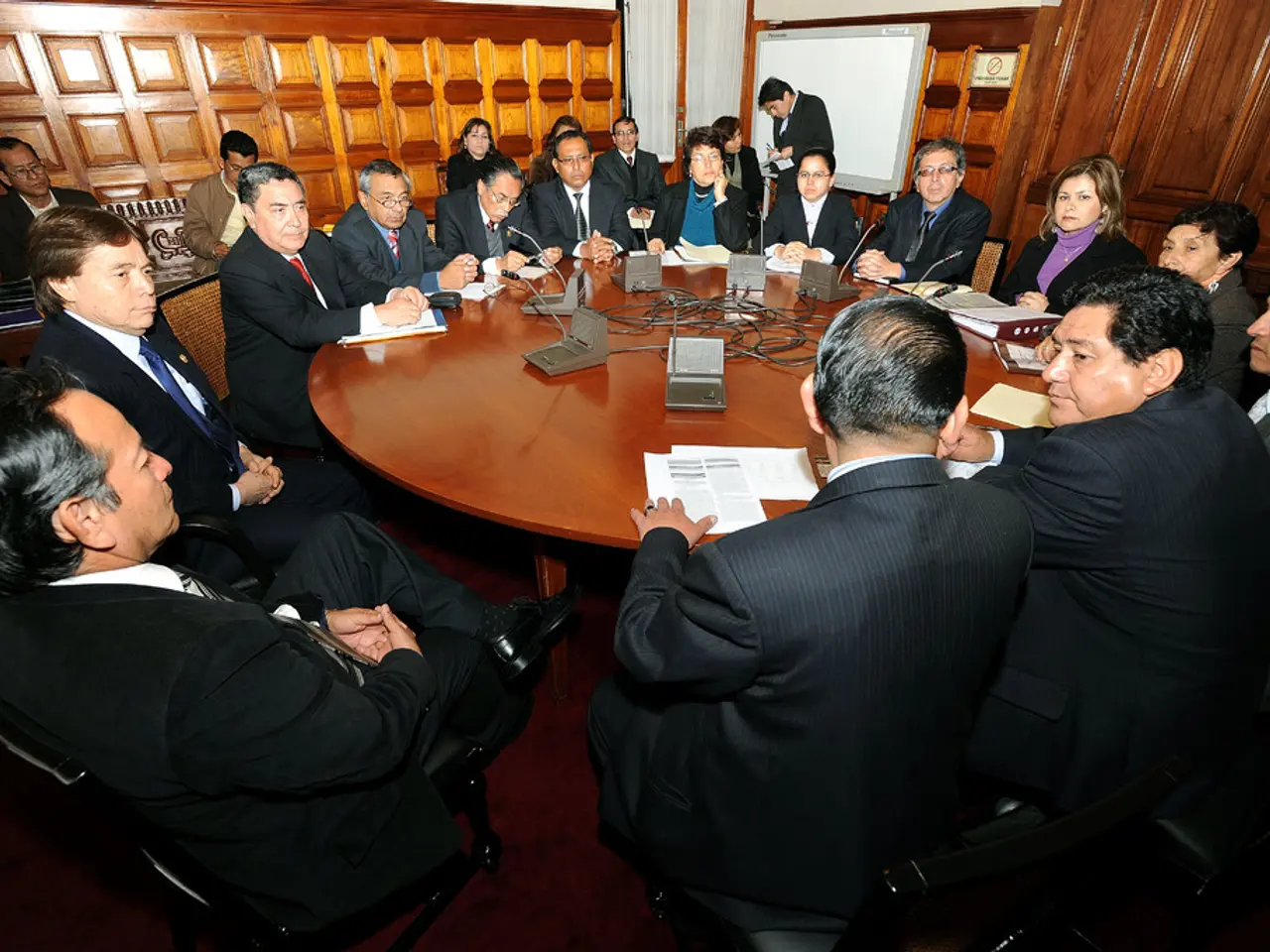Resolve conflict surrounding judge appointment by the government - Controversy Surrounding Judge Appointments: Portrayal of the Politicized Election Process
The appointment of judges to Germany's Federal Constitutional Court is currently mired in controversy, with the Bundestag vote for three new judges unexpectedly postponed due to a disagreement over the nomination of Potsdam constitutional law expert Frauke Brosius-Gersdorf.
The centre-right conservative bloc, led by Chancellor Friedrich Merz's Christian Democratic Union (CDU) and Bavaria’s Christian Social Union (CSU), withdrew their support for Brosius-Gersdorf hours before the scheduled vote, citing plagiarism suspicions and concerns over her liberal stances, particularly on abortion and mandatory COVID-19 vaccinations.
This move has sparked outrage among the SPD and the Green party, with the Greens calling for postponing the vote on all three judicial appointments, arguing that singling out Brosius-Gersdorf is disrespectful and undermines the Federal Constitutional Court’s integrity. SPD deputy leader Dirk Wiese described the conflict as "not a good day for democracy," highlighting the gravity of the coalition rift.
Conservative objections notably include calls from some CDU parliamentarians and influential Bavarian Catholic bishops, who have publicly condemned Brosius-Gersdorf’s views on abortion as fundamentally incompatible with the constitutional protection of human dignity. The bishops emphasized that relativizing such protections should disqualify a nominee for the country’s highest court, framing the issue as one of non-negotiable moral and legal standards.
As a result, the appointment process remains in deadlock. The SPD has not mentioned any new discussions or statements from Government Spokesman Stefan Kornelius regarding the matter, nor any new developments in the coalition dispute. However, SPD Faction Manager Dirk Wiese has confirmed that the Union should invite Judge Brosius-Gersdorf, who was unexpectedly removed from the Bundestag's agenda.
The SPD has also not expressed any change in their stance on the dispute over new constitutional judge appointments, maintaining their confidence that the responsible factions will handle the matter. Meanwhile, the federal government is attempting to resolve the dispute, with Chancellor Merz and Finance Minister Lars Klingbeil (SPD) having discussed the issue extensively.
The impasse exposes deep fissures within Chancellor Merz's coalition and puts the judicial appointments—and potentially the coalition's stability—at risk. The situation underscores the delicate balance of political alliances and the importance of maintaining trust and respect in the appointment process for the country's highest court.
[1] https://www.spiegel.de/politik/deutschland/koalitionskrise-um-frauke-brosius-gersdorf-auf-dem-bundestag-a-6f31f68e-75c6-4827-9f1a-1d75897e8f0e [2] https://www.welt.de/politik/deutschland/article263044095/Frauke-Brosius-Gersdorf-Koalition-krise-um-Frauke-Brosius-Gersdorf-auf-dem-Bundestag.html [3] https://www.tagesschau.de/inland/bundestag-koalition-krise-101.html [4] https://www.zeit.de/politik/deutschland/2023-03/frauke-brosius-gersdorf-koalition-krise-abtreibung-bundestag-abstimmung
- The controversy surrounding the appointment of judges to Germany's Federal Constitutional Court has spilled over into other areas of policy and legislation, with politics and general news outlets extensively covering the disagreement.
- The ongoing deadlock in the appointment process, fueled by heated debates over liberal stances on issues such as abortion and mandatory COVID-19 vaccinations, raises questions about the unity and integrity of the country's political community aid and the judicial system.





